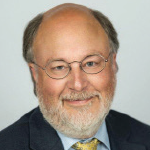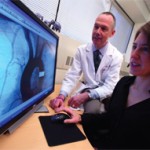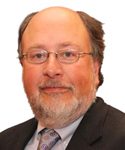
johavel / shutterstock.com
Following the 2017 ACR/ARHP Annual Meeting when the formal transition in volunteer leadership occurred, my overwhelming thought has been that it is an honor and privilege to serve you as the 81st president of the ACR. Honor stems from the heritage of excellence and progress that defines this organization. Privilege comes from the opportunity to represent the amazing group of rheumatology clinicians, researchers, educators, administrators, trainees, volunteers and professional staff that devote their talent and hard work to improving the lives of people with rheumatic and musculoskeletal disease.
Working with the diverse group of people who make up our organization is remarkably rewarding. Just as rheumatologists enjoy the process of working to understand and treat a wide range of medical conditions, meeting and working with individuals from a wide range of backgrounds with varied skills and interests are highly energizing and inspiring activities.
Volunteerism
I started my volunteer work on the ACR Committee on Rheumatology Training and Workforce Issues (COTW), where I worked with fellowship training program directors dedicated to providing the best rheumatology education possible. It was great fun. Another great early experience was being selected to participate in the ACR/EULAR Exchange Program. My work on COTW led to serving on the Scientific Advisory Council of the Rheumatology Research Foundation during the time the Foundation was assuming the responsibility to manage an expanding grants portfolio.
Following a term as chair of the COTW, I had the opportunity to continue working with the Foundation. I have witnessed the Foundation complete two highly successful fundraising campaigns that have resulted in significantly increased funding for innovative research, career development and training of new fellows. These successes have provided critical support to the rheumatology workforce and helped ensure the ongoing success of our academic programs, which are the foundation of training and research in rheumatology, at a time when other traditional sources of support have dwindled.
The ACR and its members, as well as many individual rheumatology providers, have long been the backbone of inspiration and support for the Foundation. Similarly, the collaboration with members of the ARHP that I have witnessed as a member of the ACR Board of Directors, on committee assignments and on the ACR Executive Committee has been impressive. These interactions have made it very clear that the strength and success of our organization come from having the many diverse members of the rheumatology community part of a single organization.
Opportunities Abound
I distinctly remember my first ACR committee meeting and how surprised I was to learn just how many different activities the ACR is involved in. This list has grown even larger as the field and the needs of our members have grown. From education to practice support to workforce development to quality improvement to advocacy, I can honestly report that the ACR is firing on all cylinders. It is actively achieving significant success in all of its varied activities while maintaining fiscal stability.
While the scope and impact of the ACR clearly reflect the engagement and passion of its members, success is also in no small part the result of the dedication and hard work of a highly professional staff working in the ACR office in Atlanta. Of course, it is always easier to see all that is going on from within the organization than from the point of view of a busy workweek and the daily grind.
One area in which we sometimes struggle is effectively communicating the activities and benefits of the ACR to our members—even with much work and attention focused on this important need. To this end, I encourage everyone to review the material that comes to you from the ACR and to send your questions and feedback to the staff if you do not find the information you are looking for. Our website, is a good place to learn about ACR activities and access materials.
Despite wishing to convey a genuinely positive message, one need look no further than the homepage of any news service to see that we—and our patients—face many challenges. The current, rapidly shifting political, administrative and funding policies make it difficult to predict future needs. This shifting landscape requires vigilance and the ability to respond rapidly. The ACR seeks to chart a balanced and collaborative course, but we have not hesitated to advocate for the interests and needs of our members and patients. This impact can be even greater through the involvement of individual members in RheumPAC and other advocacy efforts, and I encourage you to become personally involved in advocacy.
Even if the daily news were calmer, there is no doubt the ACR is entering a time of transition. Technological advances are rapidly changing the ways in which our members interact with the ACR, just as they will change the ways in which we interact with our patients. Funding for clinical care, education, research and drug development will be constrained for the foreseeable future. This, in turn, challenges us to use our funds efficiently and to identify new sources of funding to support the important activities of the ACR.
Looking to the Future
As the generation that built the field of rheumatology and the ACR ages and imminently moves to retirement, a new generation of rheumatology providers will move forward with different needs and expectations. The ACR must adapt to continue to serve them well. Development of young leaders has been a recent major focus of the organization and this will continue.
With these challenges in mind, I view establishing a framework and pathway for our transition to the future as job No. 1 for the organization. We have a new strategic plan that is designed to help the ACR move on this course. A major tenet of this plan is that we will function as a data-driven organization.
Certainly, the ACR’s RISE Registry is providing a huge quantity of patient care data that can serve to document the high-value care provided by rheumatologists and help improve our quality of care. Participation in RISE furthers these goals at the same time that it provides significant benefits to the individual practice.
Similarly, new IT infrastructure being built by the ACR will help improve needs assessment and the delivery of specific benefits to individual members. Using data-driven approaches will also require increased utilization of defined metrics to measure impact and success.
A Growing Community
As I look to a new year as ACR president, the successful meeting in the warm sea breeze of San Diego served to remind me of the many ways in which the ACR is meeting the needs of its members and the rheumatology community at large. This community is growing, and it was impressive to see the enthusiastic international presence at the Annual Meeting. New sessions this year, organized by AFLAR, APLAR, EULAR and PANLAR were well attended and brought valuable international experience and perspective to the meeting.
The success of our meeting underscores the importance of the ACR as a leader in education in rheumatology. Continued focus on the evolving needs of rheumatology providers and our patients will ensure ongoing success, even through stormy seas.
 David Daikh, MD, PhD, is the 81st president of the ACR. Dr. Daikh is professor of medicine at the University of California, San Francisco, where he serves as the director of the Rheumatology Fellowship Training Program and as chief of the Rheumatology Division at the SFVA Medical Center, where he directs the Arthritis and Rheumatology clinic.
David Daikh, MD, PhD, is the 81st president of the ACR. Dr. Daikh is professor of medicine at the University of California, San Francisco, where he serves as the director of the Rheumatology Fellowship Training Program and as chief of the Rheumatology Division at the SFVA Medical Center, where he directs the Arthritis and Rheumatology clinic.


